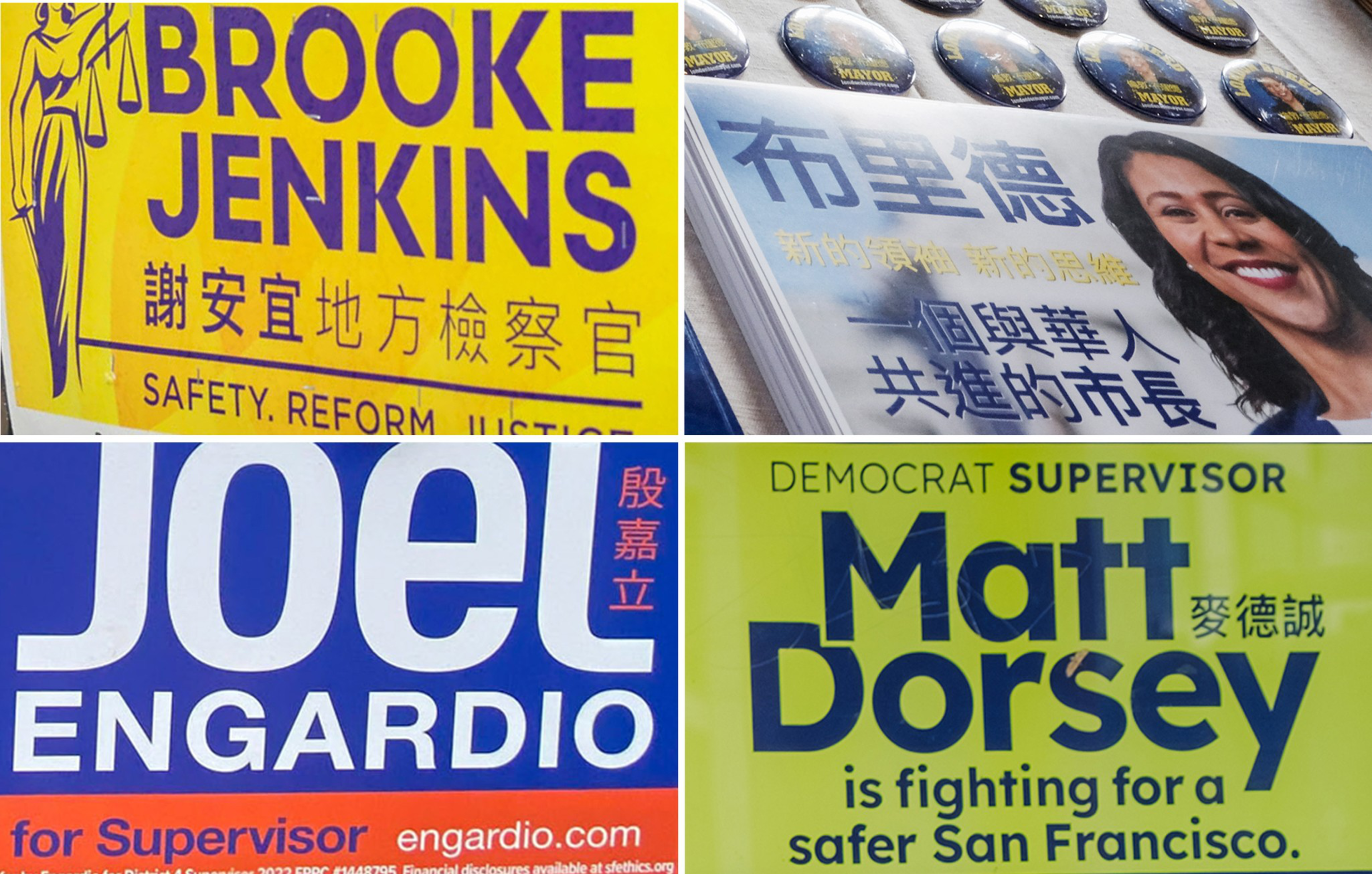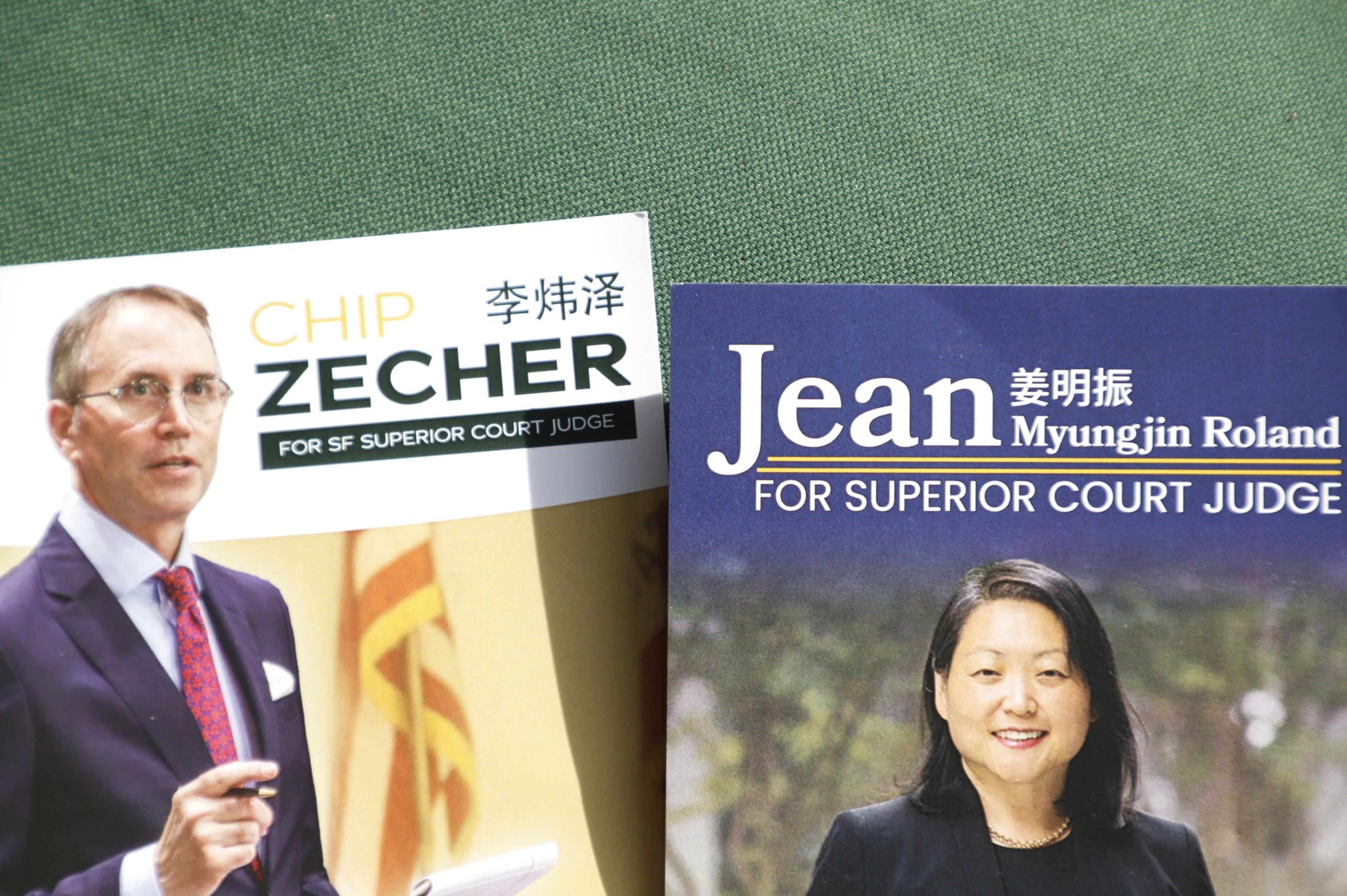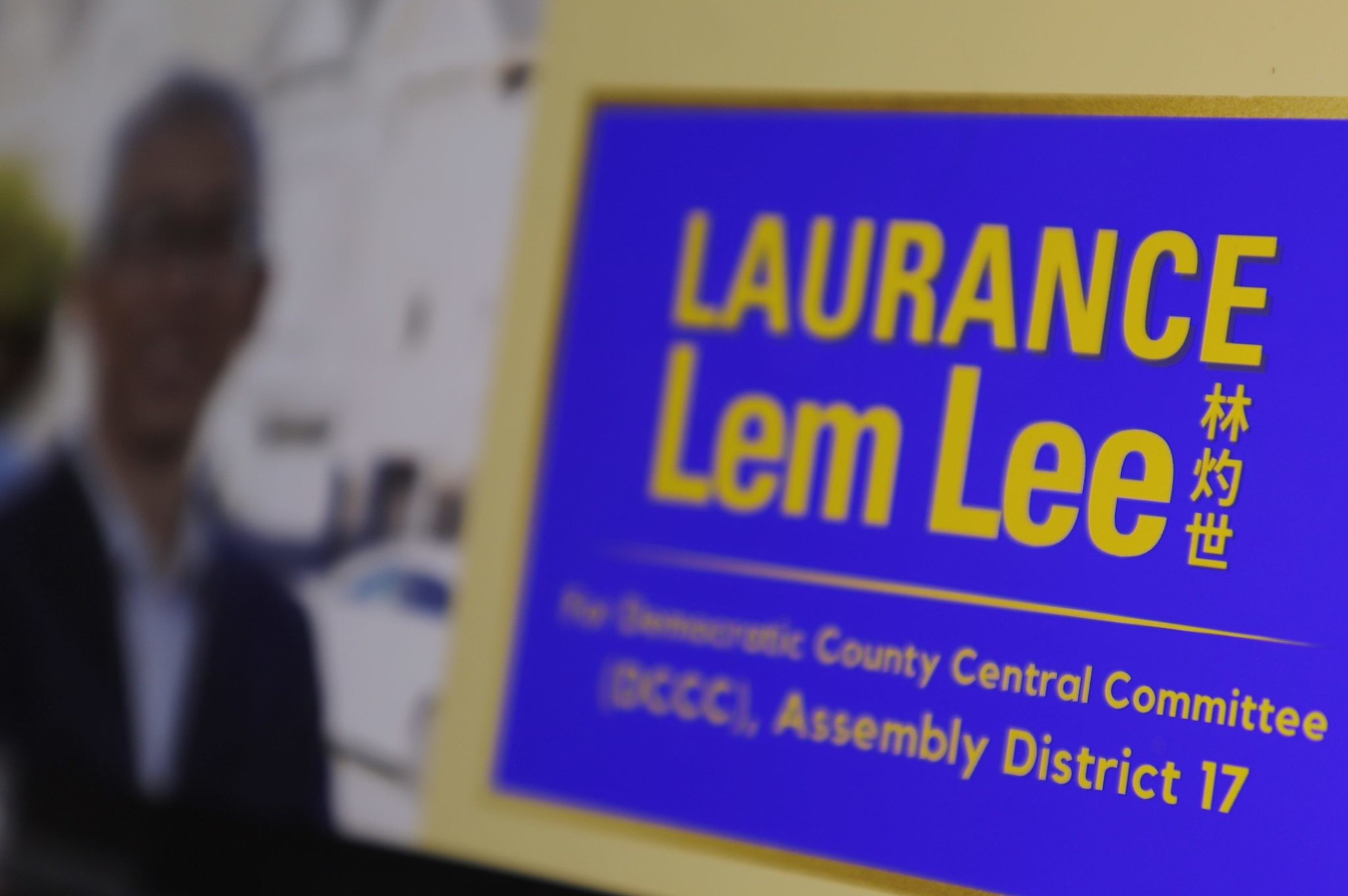A new election rule in San Francisco intended to restrict non-Chinese candidates from using Chinese names on ballots is causing problems for some Chinese American candidates as well.
The San Francisco Department of Elections released a list on Friday showing that 34 candidates will likely face rejection for using self-submitted Chinese names on the ballot, including some Chinese Americans: Laurance Lee, Jade Tu, Jingchao Xiong, Philip Wing and Jamie Wong.
Lee and Tu are running for the San Francisco Democratic County Central Committee while Wing and Wong are running for the equivalent seats in the Republican Party. Xiong is running for the state Senate.
Several weeks ago, election officials fully adopted a state law that tightens the practice of using Chinese names on ballots, which are bilingual in English and Chinese.
In the past, candidates could submit a two- or three-character Chinese name in order to appeal to Chinese-speaking voters, but now, they must prove that either they were born with the name or have been using it for two years. If not, they will be given a Mandarin transliteration-based name, which is usually a long, wordy moniker with a separation dot between the first and last names.

The city’s implementation of the rule was triggered by Supervisor Connie Chan, who sent an official inquiry to the Department of Elections (opens in new tab), citing cultural appropriation concerns.
The regulation may unintentionally hurt American-born Chinese candidates who are making their first bids for office. Unlike more established politicos who are legacied in, they may not have used their Chinese names publicly, and if they were born in the United States, they also might not have any Chinese-language documents.
“I am frustrated,” said Lee, a leader in the 2022 school board recall who is American-born Chinese. “It’s an incredible waste of time.”
Lee told The Standard he went through old documents and news articles to verify the legitimacy of his Chinese name, only to get challenged by the department. He’s now looking into his wedding documents, he said.
Lee has been displaying his Chinese name, 林灼世, on X, formerly known as Twitter and has used it in multiple Chinese news articles. Still, that did not meet the department’s two-year requirement.

Tu, a Stop Asian Hate activist and former campaign manager for District Attorney Brooke Jenkins, also slammed the new rule as “absurd.” She submitted a statement from her Chinese American mother, testifying she was born with the name 徐加儀 but still faces challenges.
“That I have to prove myself this way is not OK,” Tu said. “The law is the law, but we are fighting back.”
Tu said she’s organizing a press conference next Wednesday in front of the Department of Elections to protest the new rule.
Xiong, who was born in China and is now running against state Sen. Scott Wiener, told The Standard that he has submitted his expired Chinese passport this week and is confident his Chinese name will be approved.
Michael Lai, another candidate, has qualified, as he was also born in China and was able to provide his Chinese-language birth certificate and prove his Chinese identity.

Still, the rule has affected a number of non-Chinese candidates as well. Both incumbent Superior Court judges running for reelection, Michael Begert and Patrick Thompson, along with their challengers, Albert “Chip” Zecher and Jean Myungjin Roland, were among the 34 candidates whose names were rejected.
For example, Zecher’s Chinese name is 李煒澤, a typical three-character name. But on the ballot, he will likely appear as 艾伯特·“奇普”·澤徹, a seven-character, Mandarin-based name.
Candidates have until next Wednesday to provide additional documents in support of their self-submitted names.
